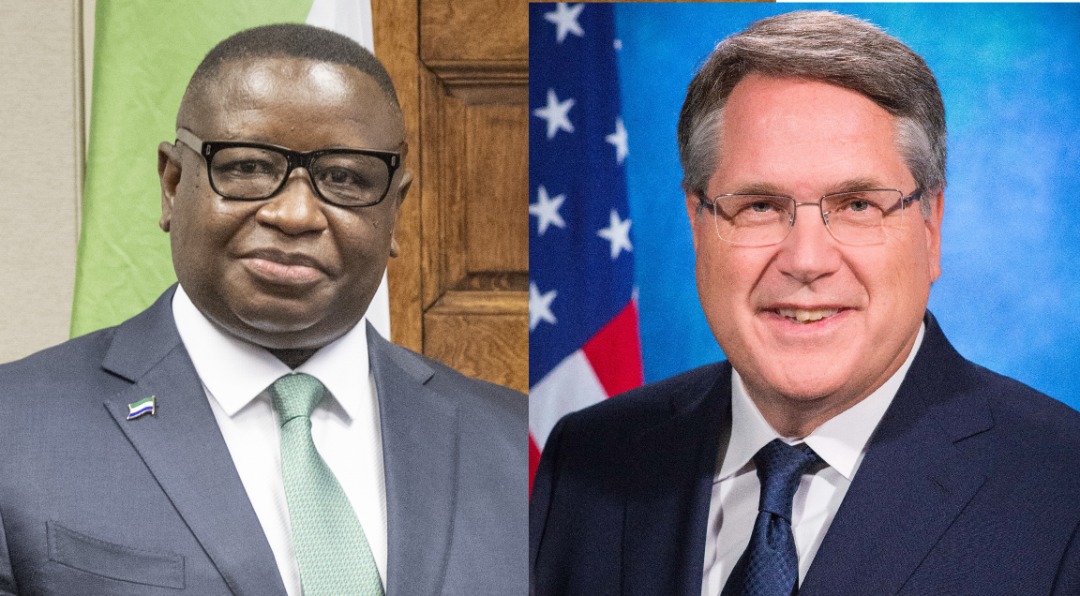In 2006, tensions escalated between the Tejan Kabbah-led SLPP Government and The Royal House. Kabbah's decision not to extend Val Collier's term as ACC Commissioner exacerbated the situation. The UK Government advocated for Val Collier to continue as ACC Commissioner, despite the Kabbah Government's opposition.
When Val Collier's initial term concluded, Kabbah swiftly appointed a Law Professor, Henry Joko-Smart, as the new ACC Commissioner. The APC sent a confidential letter to the UK Secretary of State for International Development, Hilary Benn, alleging that Prof. Joko-Smart was Kabbah's brother-in-law. Prof. Joko-Smart's appointment strained relations between the Kabbah Government and Her Majesty's Government. The UK Government threatened to withdraw financial and technical support from the ACC if Kabbah insisted on Prof. Henry Joko-Smart as Commissioner.
During a donor's conference in London, co-chaired by Hilary Benn and Momodu Koroma (Kabbah's Foreign Minister), the appointment of Joko-Smart dominated discussions. The APC rallied their supporters outside the conference venue to protest against corruption in Sierra Leone. Kabbah instructed Momodu Koroma to use his influence within the UK Government to support Prof. Joko-Smart's appointment.
Kabbah had rejected a formal request from the UK Government to prosecute Okere Adams for allegedly influencing a contract award in the Ministry of Marine Resources. Val Collier's decision to arrest Okere Adams embarrassed Kabbah, who had favored Adams.
Due to the Kabbah Government's refusal to revoke Okere Adams' legal immunity, the UK Government reduced its budget support to Sierra Leone by £5 million. Momodu Koroma played a crucial role in maintaining UK support for Sierra Leone's fragile economy through diplomatic efforts.
By the time Kabbah left office in 2007, his relationship with the UN Special Representative of the Secretary-General (SRSG), Jose Victor Angelo, had deteriorated. Kabbah's disputes with the UK Government and the UN Country Office in Sierra Leone were resolved through discreet diplomacy.
In recent news, the United States has introduced a visa restriction policy targeting individuals believed to undermine democracy in Sierra Leone through election manipulation, voter intimidation, or human rights violations. The affected individuals may also include their family members, and existing US visas may be revoked. The identities of those affected by this policy remain undisclosed by the Sierra Leone Government.
The US Embassy in Freetown should clarify the details of this open-ended visa restriction policy, which will remain in effect as long as the US Government deems it necessary. According to a US Embassy spokesperson, additional names may be added to the list if new evidence of election rigging emerges.
Regarding the ongoing situation, some government officials should refrain from making public comments, allowing the President to handle the matter. Engaging in a public dispute with the US Government could have significant consequences, as the US wields influence over decisions made by institutions such as the IMF and the World Bank. Sierra Leone faces various challenges, including subsidy removal, and domestic debts are being settled through treasury bonds issuance.
It is essential to support President Bio's efforts to address this complex issue through quiet diplomacy, similar to his approach to the Yenga crisis earlier this year. President Bio may consider establishing an Advisory Council at State House, consisting of distinguished citizens regardless of their political affiliations. In politics, tough decisions must be made, and the nation's interests should supersede individual egos. Common sense and the greater good of the nation should prevail.

